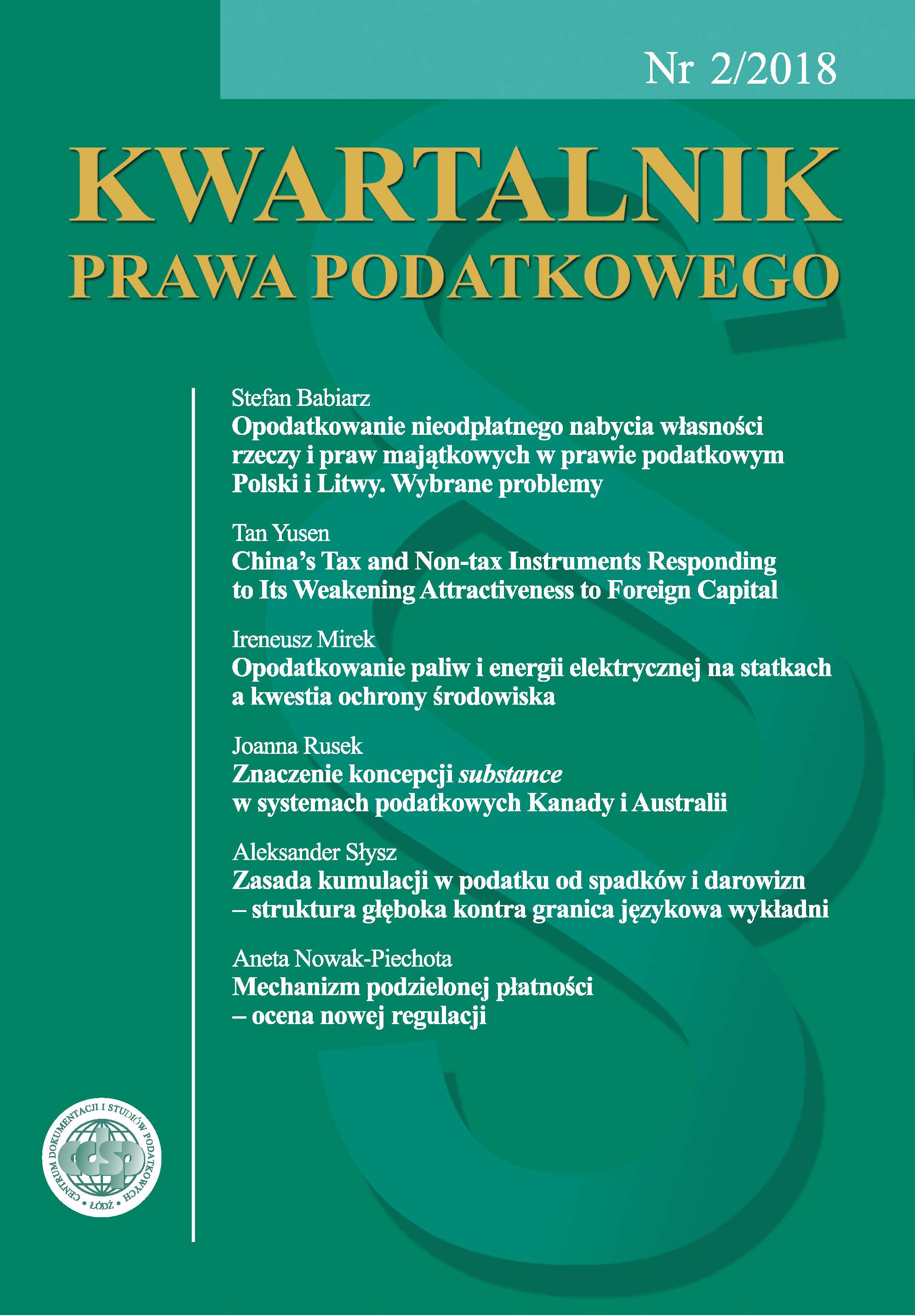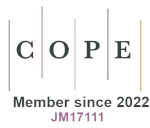Taxation of property and property rights acquired free of charge in the tax law of Poland and Lithuania. Selected problems
DOI:
https://doi.org/10.18778/1509-877X.2018.02.01Keywords:
inheritance, donation, debt collection, ordinary entry, further entry, entity, subject of taxation, tax base, reliefs and exemptions, inheritance tax in force in the Republic of Lithuania, Act on inheritance and gift taxAbstract
The presented comparisons clearly show that the inheritance tax applicable in the Republic of Lithuania is a simple tax, uncomplicated both in legal and financial scope. Therefore, it does not cause serious practical problems in terms of payment or assessment. Its calculation and assessment are friendly for taxpayers. With respect to this, one should particularly note such solutions as lowering the tax base by 30%, non-deductibility of debts and burdens and the complicated procedure for its determination, respect for the principle of avoiding double taxation, or the fact that a new tax obligation may not occur.
This cannot be said about the inheritance and donation tax applicable in Poland. The only thing that can be said in favour of the solutions in force in Poland is that the scope of the discussed ta Xis wider, which means a number of obtained items cannot be burdened with higher income tax on natural persons.
The author envisages this publication as a first in a series of publications that will inform Polish taxpayers, tax authorities and lawmakers of the legal solutions in force within the scope of taxation of gratuitous acquisition of property and property rights in other selected European countries. The Polish Act on inheritance and donation tax is exceedingly complicated, causes tax disputes, does not facilitate establishing correct relations between taxpayers and tax authorities, and undoubtedly also leads to family conflicts.
Downloads
References
Babiarz S., Spadek i darowizna w prawie cywilnym i podatkowym, Warszawa 2018.
Google Scholar
Etel L., Opodatkowanie dochodu w wybranych krajach Europy Środkowej i Wschodniej, Białystok 2006.
Google Scholar
Fedorowicz Z., Finanse w gospodarce socjalistycznej, Warszawa 1966.
Google Scholar
Gajl N., Finanse i prawo finansowe, Warszawa 1980.
Google Scholar
Kostecki A., Elementy konstrukcji podatku, [w:] System instytucji prawno-finansowych PRL, t. 3: Instytucje budżetowe, cz. 2: Dochody i wydatki budżetu, red. M. Weralski, Ossolineum, Wrocław 1985.
Google Scholar
Mariański A., Komentarz do art. 7 pkt 1, [w:] S. Babiarz, A. Mariański, W. Nykiel, Ustawa o podatku od spadków i darowizn. Komentarz, Warszawa 2010.
Google Scholar
Medelienĕ A., Sudavičius B., Mokesčius teisě, Vilnius 2011.
Google Scholar
Mikielewicz A., Warunki życia i pracy w krajach Europejskiego Obszaru Gospodarczego, Białystok 2012.
Google Scholar
Nita A., Stosunek prawnopodatkowy, Kraków 1999.
Google Scholar
Nykiel W., Komentarz do art. 15 pkt 1, [w:] S. Babiarz, A. Mariański, W. Nykiel, Ustawa o podatku od spadków i darowizn. Komentarz, Warszawa 2010.
Google Scholar
Nykiel W., Ulgi i zwolnienia w konstrukcji prawnej podatku, Warszawa 2002.
Google Scholar
Ostrowski K., Prawo finansowe. Zarys ogólny, Warszawa 1970.
Google Scholar
Reniger H., Prawo finansowe, red. L. Kurowski, Warszawa 1955.
Google Scholar
System finansów publicznych Polski i Litwy, red. S. Presnarowicz, B. Sudavičius, Białystok 2017.
Google Scholar
Zawora J., Samodzielność finansowa gmin w świetle uwarunkowań prawnych i samorządowych wydatków inwestycyjnych, „Finanse Komunalne” 2014, nr 10.
Google Scholar
Downloads
Published
How to Cite
Issue
Section
License

This work is licensed under a Creative Commons Attribution-NonCommercial-NoDerivatives 4.0 International License.
PlumX metrics









